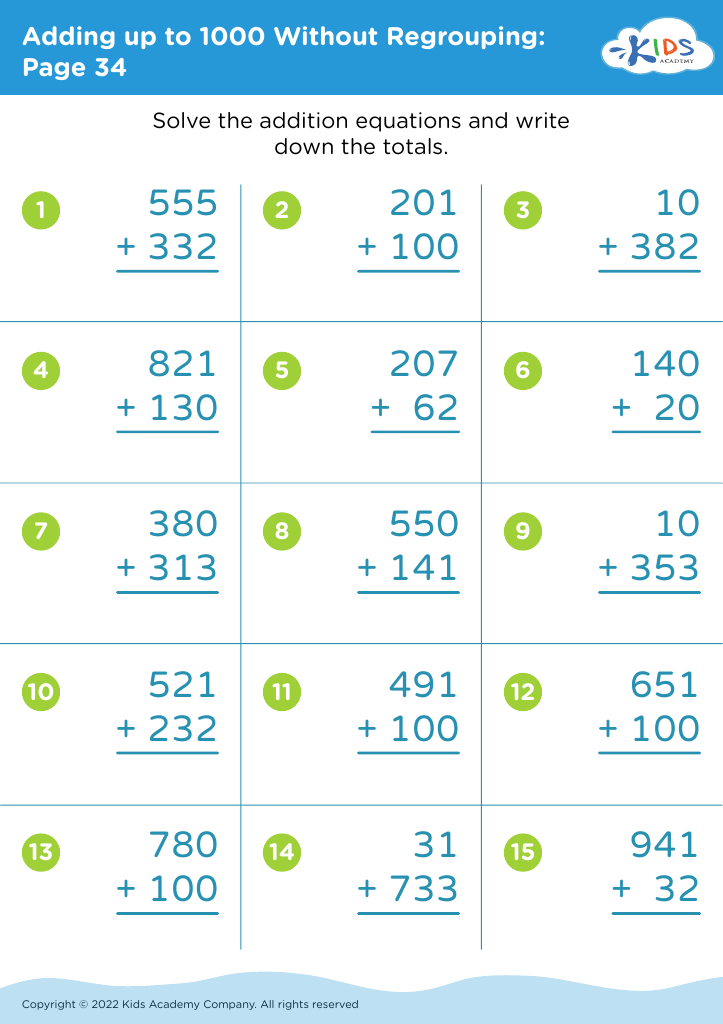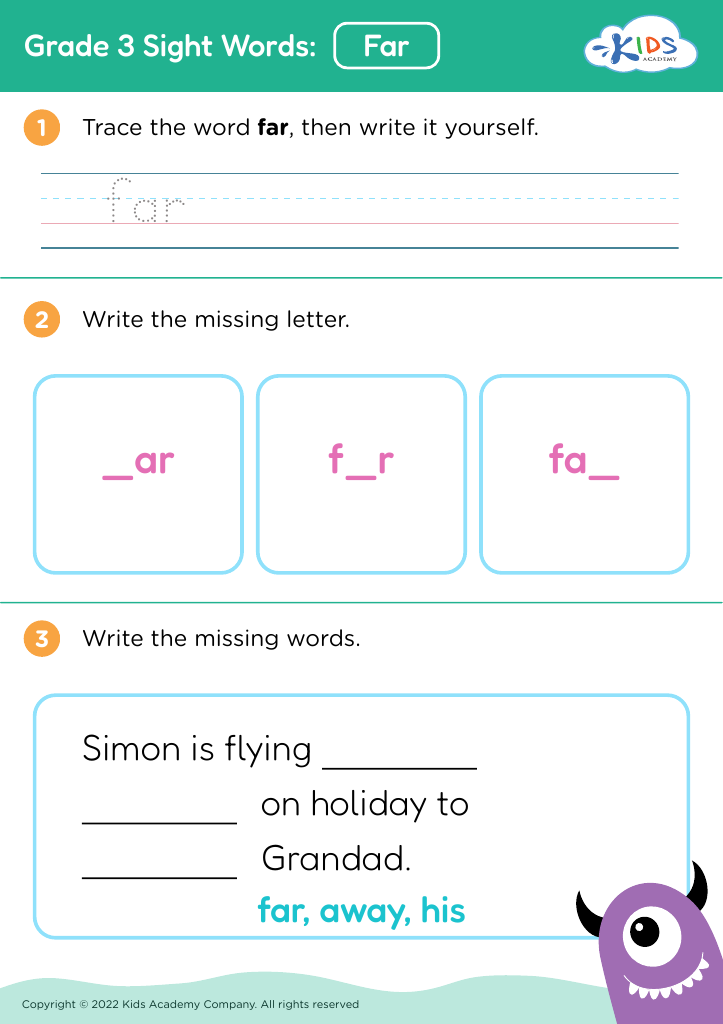Practice math skills Worksheets for Kids
2 filtered results
-
From - To
Question/Answer
Why is the Practice math skill important for Grade 3 students?
Practicing math skills is important for Grade 3 students because it helps solidify foundational concepts necessary for understanding more complex mathematical ideas later. It enhances problem-solving and critical thinking abilities, supports academic success across subjects, and fosters a positive attitude towards learning math. Regular practice also helps students gain confidence and proficiency in math, setting a strong educational foundation.
What does the Practice math skill mean when it comes to Grade 3 Sight Words learning?
The "Practice math skill" in the context of Grade 3 Sight Words learning refers to exercises or activities designed to reinforce mathematical vocabulary and concepts. These activities help Grade 3 students recognize and understand key math terms, which are essential for solving problems and understanding math instructions, thereby improving their math literacy and proficiency.
How to test a Grade 3 student’s Practice math skills?
To test a Grade 3 student's practice math skills, create a short assessment covering key grade-level topics like basic multiplication and division, understanding fractions, simple geometry (identifying shapes and their attributes), telling time, and solving word problems. Use a mix of multiple-choice, true/false, and fill-in-the-blank questions to evaluate their understanding and application of these concepts.














